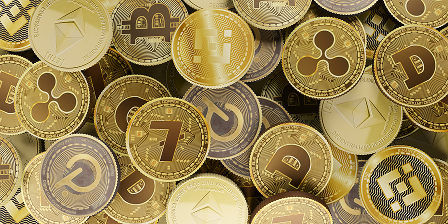Tips for Safely Storing Your Crypto Assets
January 25, 2025
The world of cryptocurrencies offers many opportunities, but with them come risks. One of the most important aspects of owning cryptocurrency is the security of your assets. In this article, we’ll look at the key aspects of securely storing cryptocurrencies, drawing on the expertise of the PayPilot Academy.
Why is cryptocurrency security so important?
Cryptocurrencies are stored digitally, and unlike cash, they cannot be returned if they are stolen. Hacking, phishing, loss of access – all these are real threats that cryptocurrency owners face. Losing your assets can have serious financial consequences.
Regulation of cryptocurrencies and its impact on security
Cryptocurrency regulation is a complex and constantly evolving process that has a significant impact on the security of this market. On the one hand, clear rules can increase investor confidence and encourage crypto exchanges and other services to improve security standards. Introducing mandatory two-factor authentication, storing backups in cold wallets and regular security audits could all become the norm in a regulated environment. In addition, a clear legal framework will protect investors’ rights and prosecute fraudsters, creating a safer environment for all market participants. Regulation can also limit anonymity, making money laundering and terrorist financing more difficult.
However, over-regulation can lead to negative consequences. Strict regulations can limit innovation and make it difficult to develop new projects and technologies in the cryptocurrency space. Additionally, increased operating costs for crypto exchanges and other services caused by regulation may result in higher service costs for users. In some cases, too strict regulation may even provoke an outflow of business to countries with a more favorable climate for cryptocurrencies.
How to ensure the security of your cryptocurrencies?
1. Choose a reliable crypto wallet
- Hardware wallets: This is the safest storage option. Hardware wallets are physical devices that store your private keys offline. They are practically invulnerable to hacker attacks.
- Software wallets: Less secure than hardware ones, but easy to use. Choose reputable wallets and update their software regularly.
- Online wallets: The least secure option, since your funds are stored on the servers of the exchange or service. Use them only for short-term storage of small amounts.
2. Protect your private key
- Never share your private key with anyone. This is the key to your funds, and losing it means losing access to your assets.
- Create a reliable backup: Write down your seed phrase on paper and keep it in a safe place. Never save it digitally.
- Use two-factor authentication (2FA): This is an additional level of security that requires you to verify your identity when logging into your account.
3. Be careful of phishing
- Do not click on suspicious links: Phishers often create fake websites that look like real ones to steal your data.
- Check email addresses: Phishers may send you emails on behalf of exchanges or other services to direct you to phishing sites.
- Do not provide your information over the phone or in chats: Support for real exchanges will never ask you to provide your private keys or seed phrases.
4. Divide your funds
- Don’t keep all your eggs in one basket. Split your funds between several wallets. This will help reduce risks in case one of the wallets is hacked.
5. Update your software regularly
- Software vulnerabilities can be used by hackers to break into your wallets. Regularly update the software of your devices and wallets.
6. Turn to the experts
- PayPilot Academy offers a wide range of educational materials on cryptocurrency security. Explore our articles, webinars and other resources to increase your awareness.
Additional recommendations from PayPilot Academy:
- Use strong passwords. Create complex passwords consisting of a combination of letters, numbers and special characters.
- Be careful when choosing exchanges and services. Choose only proven and reliable platforms.
- Check your transactions regularly. Monitor your funds and respond promptly to any suspicious activity.
- Learn new methods of protection. The crypto world is constantly evolving, and you need to stay up to date with the latest threats and defenses.
Cryptocurrency Insurance: Are there insurance products for cryptocurrencies?
The cryptocurrency insurance market is at an early stage of development, but already offers some interesting solutions. There are decentralized insurance protocols (DeFi) that allow you to insure your assets against various risks, including hacks, loss of keys, and even market fluctuations.
However, it is worth noting that cryptocurrency insurance has its own characteristics:
- Limited Availability: Not all cryptocurrencies and platforms are supported by insurance protocols.
- High Cost: Insurance premiums can be significant, especially for large amounts.
- Insurance conditions: Each insurance protocol has its own conditions and restrictions.
Before choosing an insurance product, carefully study its terms and conditions and consult with an expert.
Despite these limitations, cryptocurrency insurance is a promising area. It provides an additional layer of protection for your investments in the rapidly evolving world of digital assets.
Cryptocurrency security is a complex task that requires constant attention. By following these tips and seeking help from experts, you can significantly improve the level of protection of your assets.




